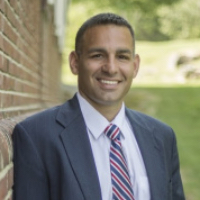 Kennebec County, ME DUI-DWI Lawyers
Kennebec County, ME DUI-DWI Lawyers
Sponsored Law Firm
-
 x
x

Click For More Info:
-
Keches Law Group
122 Dean Street Taunton, MA 02780» view mapSocial Security, Personal Injury, Workers Comp. Protecting Your Rights
Our team of experienced personal injury attorneys has over 130 years of combined experience representing individuals and families injured due to the negligence of others.
800-713-8650
Not enough matches for Kennebec DUI-DWI lawyer.
Below are all Kennebec lawyers.
Sponsored Lawyers
1-10 of 54 matches
Accident & Injury, Wrongful Death, Car Accident, Insurance, Bankruptcy & Debt
After law school, Jason worked in the Appellate Division of Unum Insurance Company. In 2001, Jason left Unum for private practice and he has been representing Mainers ever since at Jabar LaLiberty, LLC. Jason trained under his father, current Maine Supreme Court Justice Joseph Jabar, and former law partner and current Maine Superior Court Justice Michaela Murphy. Jason currently serves on the Board of Governors for the Maine Trial Lawyers Association and previously served on the Board of Directors for the Maine Association of Criminal Defense Lawyers. Jason has extensive courtroom experience, handling hundreds of civil and criminal cases, including two criminal homicide cases. He has fought in over one hundred contested trials, including several jury trials. In Jason’s first personal injury jury trial, he obtained a $148,000 jury verdict for his injured client after a four-day trial against one of the state’s top insurance defense attorneys. In that case, the opposing insurance company offered nothing to settle. He also obtained verdicts of $406,000, $311,000, and $175,000 for his clients, all in cases where the opposing parties offered nothing to settle. Jason has helped recover tens of millions of dollars for his clients in personal injury settlements and judgments, including $3.9 million and $4.5 settlements. In January 2013, Jason was given the prestigious “Top 40 Under 40” label at the National Trial Lawyers Association Summit in Miami. From 2018 to the present, Jason has been named to the “Super Lawyers” list by the reputable Super Lawyers Magazine in the field of personal injury. He has received a “superb” rating of 10 on Avvo. Because of his strong experience and reputation in personal injury law, other Maine attorneys regularly refer personal injury cases to Jason. Jason is married with four children. When not working, he is active coaching youth football and basketball and enjoying time with his family.
(more)


 Sean Flaherty Taunton, MA
Sean Flaherty Taunton, MA AboutKeches Law Group
AboutKeches Law Group Practice AreasExpertise
Practice AreasExpertise

